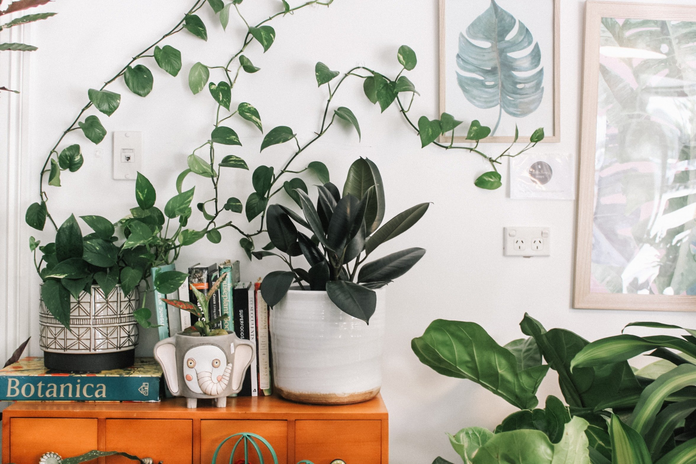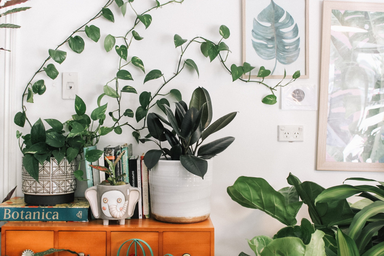Our planet is dying; I’m sure we all know this. Perhaps you don’t care or, if you are like me, you DO care, but have no clue what you can do about it. If you live in Puerto Rico, I don’t blame you: eco-friendly systems aren’t usually available. For example, the option to recycle isn’t accessible to everyone:
While Puerto Rico requires recycling by law, many of the island’s cash-strapped municipalities don’t enforce these laws, said Zaidi Guzmán of IFCO Recycling, the main operator of recycling facilities on the island. Guzmán estimates that about 48 of Puerto Rico’s 78 municipalities have some form of recycling, although the systems are not standardized (Trouble in Paradise…, Glatsky).
Out of 78 municipalities, only 48 have available recycling? To make matters worse, it’s not even standardized systems, which means they aren’t fully established or promoted throughout the municipality. Furthermore, some of these municipalities are only being mentioned for having some form of recycling, whatever that means. “The Puerto Rico Recycling Partnership (PPRP), an initiative created by the U.S. EPA and the government of Puerto Rico, estimates that approximately 12-14% of waste is recycled” (Trouble in Paradise…, Glatsky). This number is alarmingly low, considering the fact that half of the municipalities claim to be “recycling.” Growing up, my science classes always raved about the benefits of recycling, declaring that it will help with the prosperity of our planet. My elementary school self would run home and beg my mom to recycle, but then I found out the recycling system in my neighborhood is flawed and doesn’t really work. My dreams of saving the planet were shattered because I thought that was the only thing I could do. As I got older, I never thought I could do anything that could benefit the environment, especially while being a college student. Our life is extremely fast-paced and not to mention, usually broke. However, I regained hope when I learned a few uncomplicated ways to help reduce my carbon footprint and the waste I produced. They might not seem like much, but they are habits that if we all tried to do, we could make a small difference. Doesn’t our planet at least deserve that?
Now, without further adieu, let’s dive in on the simple things you can do to reduce waste.
1. If you haven’t invested in a reusable water bottle yet, please do.
I see so many people using one-use plastic bottles, mostly because students don’t have another source of water; the water fountains are usually broken (or they simply don’t trust their cleanliness), and they just decide to quickly buy one in the nearest vending machine. “However, if you purchase a reusable water bottle to take it everywhere you go, you wouldn’t need to spend that dollar every day. Not only are you reducing your plastic waste, but you can save some cash too. “The average American buys an average of 167 disposable plastic water bottles, costing you $266, a year” (Money in a bottle, Toft). So, save your pocket in the long run and help the planet as well. It is also worth noting that water stays much colder in a metal/glass bottle anyways.
2. Avoid plastic as much as you can, like straws and plastic cutlery.
Reusable straws became a “trend” for a while, but let’s keep it! It’s a simple way to eliminate a common plastic use, along with buying a reusable set of cutlery to keep in your bag. Usually, fast foods and some take outs always give out these plastic items. You could decline them and use the ones you have in your bag instead. Personally, not only do I feel good doing it (because it’s eco-friendly), but I also, illogically, feel fancier drinking from a metal straw. So, hey! Save the planet with class at the Wendy’s drive through. These items can easily be found at Marshalls or at Walmart.
3. To all makeup lovers… try to avoid the makeup wipes and cotton pads.
Makeup wipes get the job done but produce so much waste. There are many options out there that are more eco-friendly or even reusable. Cotton pads were also a favorite of mine to apply products, such as toner, but I recently got a small spray bottle: I pour my toner inside and spray it on my face instead. Since I’ve been in quarantine, I haven’t really done my makeup, but I’ve seen many YouTube videos demonstrating that using a microfiber towel works great to remove makeup. They are cheap and can be bought in bulk, so you can calmly use them throughout the week without worrying about getting them in the wash right away (this is an investment I’ll definitely have to make). It’s another good way to cut back on waste that also benefits your pocket in the long run.
4. You know what else I’ve recently realized is a common plastic waste? Toothbrushes.
Now, I must clarify that I’m not about to tell you not to brush your teeth. That is nasty. What I mean is that most toothbrushes are made of rubber and plastic, and every month we discard them to buy new ones. Did you know that bamboo toothbrushes are a thing? I had seen them in the store before, but my dumb *ss always looked over them thinking it was more of an aesthetic thing, but no, they are biodegradable and therefore, much better for the environment when throwing them out. Plus, they’re cute too, so it’s a win/ win.
5. Now what I’m about to say might be hard to hear, but hear me out.
Veganism has been proven to help the environment, because the production of animal products and meats contribute a lot to the gas emissions in the air. However, we have to be transparent here, it is expensive. Not only is my college student-self unable to keep up with that lifestyle economically, but I also can’t keep up with it in my everyday life easily. Us students are in a constant hassle, barely have time to cook, and eating out is the only choice we have sometimes. Plus, finding vegan ingredients and options is tough, not to mention the increased prices. Veganism just isn’t an option for me right now. Meat is a safety net in my fast-paced college routine: just throw some adobo on that chicken and in the pan it goes. However, dairy is equally guilty for these emissions, because they come from the same source as meat.
“After the cows eat the feed, they release methane through their digestive systems, and then their manure also produces lots of greenhouse gases,” Bergen says. NRDC has documented high levels of methane emissions from the “lagoons” where factory farms dispose of animal waste. Another particularly nasty by-product of cow dung is nitrous oxide, a climate-warming pollutant 298 times more powerful than carbon dioxide (To shrink your carbon…,Shalant)
Dairy can be eliminated or reduced more easily than meat. I decided to go dairy free whenever I can. If it’s not necessary, then I don’t get it. I replaced milk with almond milk, got dairy free yogurt, and removed cheese from my orders at restaurants. If I can avoid purchasing it or using it, then I do. However, if I’m at a party and they are serving pizza, it was already bought and dairy was used up anyways, so a slice won’t hurt me or the environment more than it already has. It’s not about eliminating, but reducing it as much as possible. Also, I’ve heard eliminating/ reducing dairy can improve skin complexion and reduce breakouts. I’m praying this will work for that as well.
6. Think about the things you buy.
Avoid unnecessary impulsive purchases. One example is clothes: trends come and go, and we end up with a bunch of clothing we don’t use. Fast fashion is a menace to the environment. Please buy things you really like and that you see yourself using for a long period of time. If you have clothes you don’t need, try giving them to a friend or donating them. Same can apply to other things we want in the spur of a moment. Just take the time to think about it before reaching for your wallet.
These have been habits I’ve adopted over time, and it’s been a great experience. Will you join me in helping conserve our planet?



